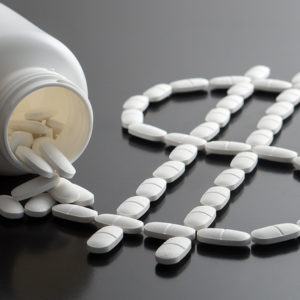New Hampshire’s federal delegation spent the better part of the last two years voting for stimulus policies that totaled $6 trillion in new government spending. They stated with confidence that those policies would rebuild our economy after the COVID pandemic. Sen. Maggie Hassan, for example, said the $2 trillion American Rescue Plan would “get our economy back on track” and the $3 trillion infrastructure bill would “grow our economy.”
What actually happened? Inflation went through the roof; 9.1 percent year-over-year in June. Worse, the U.S. economy shrank by 1.6 percent during the first quarter of 2022.
We can draw two lessons from this mess:
1) massive legislative initiatives with too-good-to-be-true promises always come with unintended consequences;
2) don’t trust the high-flown rhetoric of the political class.
Now they are at it again. This time they are going to “fix” prescription drug prices. The truth is, their plan would establish government price controls under Medicare, reducing access to life-saving drugs and restricting the development of future treatments and cures in the process.
Advocates claim they only want the federal government to be able to “negotiate” drug prices. In reality, they’re seeking to do a lot more than that. The Democrats’ plan is more like coercion. It would potentially levy a 95 percent excise tax on the sales of a drug if a pharmaceutical company doesn’t participate in the “negotiation.” This is literally how the mob “negotiated” protection money from neighborhood merchants.
Artificially capping drug prices would result in a significant decline in the research and development of new life-saving medicines.
Last year, Tomas J. Philipson and Troy Durie of the University of Chicago examined the impact of price controls on medical innovation by looking at the Lower Drug Costs Now Act. They concluded it, “would lead to a 29 to 60 percent reduction in R&D from 2021 to 2039 which translates into 167 to 342 fewer new drug approvals during that period. The mid-range effect of the evidence implies a 44.6 percent decline in R&D and 254 fewer new drug approvals.”
Even more chilling, Philipson and Durie write, “as a benchmark on the large size of the adverse health effects this implies, we conservatively find the loss in life from the price controls the next 10 years is 20 times larger than the loss from COVID-19 to date in the U.S.”
Any matter of public policy that is not related to the military that carries such a breathtaking death toll should be dismissed immediately.
This proposal will also reduce patient access to the treatments and medicine they need. As Sally Pipes of the Pacific Research Institute has observed, “While U.S. patients had access to 96 percent of all new cancer medications launched between 2011 and 2018, Canadian patients had access to fewer than 60 percent.” It goes without saying that Canada has a price control regime in place.
The fact is, the program Washington Democrats are trying to change – Medicare Part D – is enormously popular, according to a 2021 Morning Consult survey. Around 90 percent of seniors on Part D say they are satisfied with their Medicare prescription drug coverage. And only 14 percent say the cost of their prescription drugs is very burdensome.
The same Washington politicians who “fixed” gas prices, the supply chain mess, the baby formula shortage, and inflation, are now coming for our older neighbors’ prescription medicines. Their approach won’t work. Their record shows they’ll only make matters worse.





